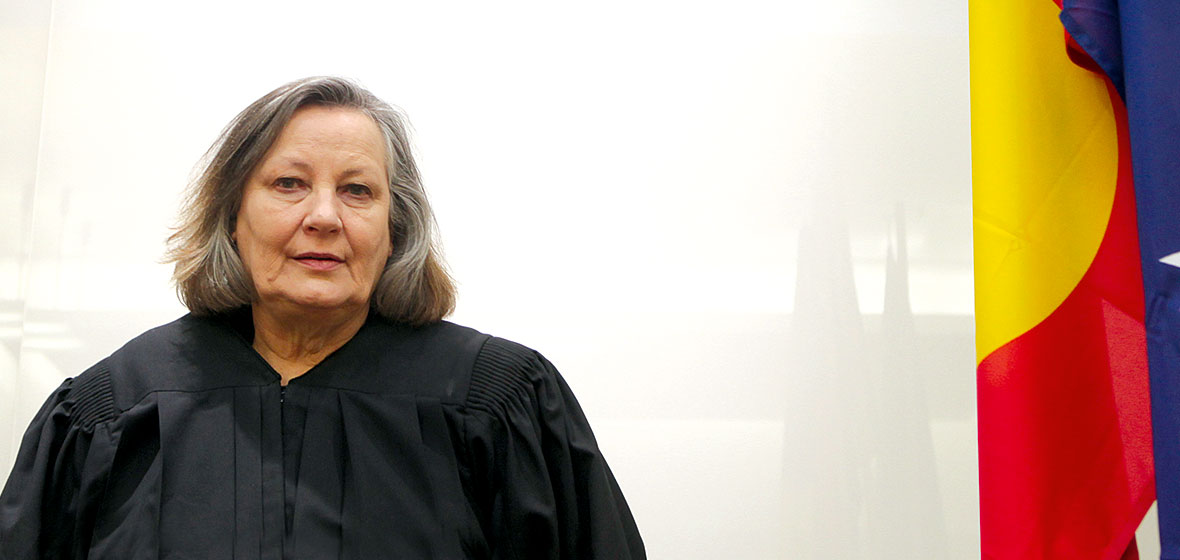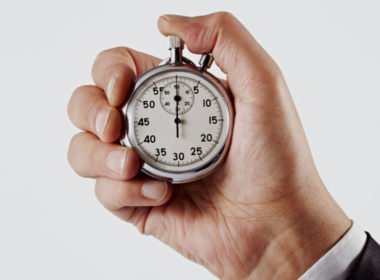It’s a circle of hope. Nine people sit around a wooden table in the NSW Youth Koori Court in Parramatta. A 16-year-old boy who has some drug and alcohol problems and owes $2,000 in fines for riding trains without a ticket joins them. He is the subject of a Youth Koori Court conference, one of seven cases to be heard during the day. It’s a tragic social story the court is trying to prevent from getting worse. The idea is to put in place a plan to help him achieve his goal of staying out of trouble and out of custody. Magistrate Sue Duncombe, who heard the first case in the NSW Youth Koori Court in February, tells him: “The law requires me to look at what you do in the next three to six months before you are sentenced. If you do the right thing, that will be taken into account. We want to work with you to create an action and support plan to stop you from getting into more trouble. The action is what you have to do and the support is what we around this table can do to help you.” A Family and Community Services staffer tells the group she can assign a case worker to help the teen find assisted housing. A lawyer from Legal Aid NSW says she can help him apply for his own Medicare card, organise a health check, and help pay his fines. An Aboriginal social worker from Daramu Aboriginal Youth Services, a youth support program that’s part of Marist Youth Care, says he can transport him to drug and alcohol counselling. The most powerful moment comes from an Aboriginal elder, Aunty Jenny of Mt Druitt, when she says: “People care about you and that’s why they are setting up these courts to keep our young people out of jail. It’s sad to see young people in jail. You need to know you are not alone.” At the end, the teen stands and shakes the hands of everyone around the table except for Aunty Jenny, who gives him a long hug. Magistrate Duncombe watches and provides a firm but smiling figure of reassurance. She tells JANE SOUTHWARD about working in a powerful new court program.
The NSW Youth Koori Court started in February in Parramatta Children’s Court as a small pilot program aimed at addressing the over-representation of Aboriginal youth in the criminal justice system. It is about re connecting them with their culture and providing support and a culturally-appropriate forum for discussion about the factors that increase his or her chances of committing crimes.
So far, the Youth Koori Court has admitted 16 young people into the program. The program is part of a strategy aimed at confronting the national problem of Aboriginal young people, often from very disadvantaged backgrounds, ending up in custody at rates up to 24 times those of their non-Aboriginal counterparts.
Part of the aim is to identify and tackle the reasons these young people commit crimes and help them find new or renewed connection with their Indigenous communities, support networks and services.
I come from a strong and supportive family. I was the second person in my extended family to attend university; my older brother being the first when he studied medicine. I was born in Nowra and went to Wollongong High School where I met my husband when I was 14. In August, we celebrated 40 years of marriage. I had a privileged background – not financially, but certainly socially – with real stability and support coming from my parents who will soon celebrate 66 years of marriage.




